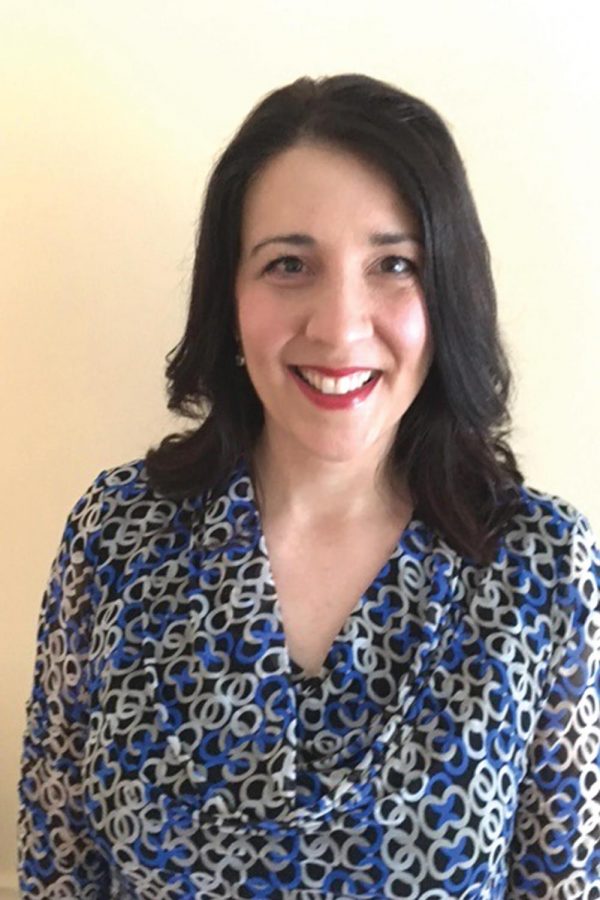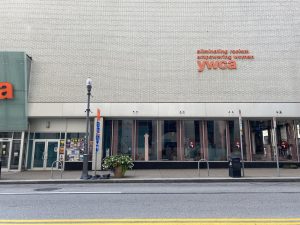Career development shares best resume tips
The do’s and dont’s of creating a professional portfolio for the future
Photo by Submitted Photo| Monica Ritter
Monica Ritter is the career counselor for the Conservatory of Performing Arts. Her biggest tip is to list everything students do and choose which things best apply to the position being applied for.
January 23, 2018
Resumes are an employer’s first impression of an applicant, and can be the key to landing a dream job. In addition to checking for spelling errors, there are other things students can do to ensure that their resume gets them an interview.
Elsie Boucek, career counselor for the School of Communication, recommends students start creating their resumes by putting down some basic information.
“If a student reaches out to me about starting a resume, I’ll suggest that they start there,” Boucek said. “And then once they’ve got some information down, come back and we can work on the spacing, the organization.”
According to Boucek, there are certain basic elements that should be on a resume such as contact information, skills, education and relevant experience.
“This is one area where I find that sometimes students don’t understand what relevant experience is. Experience doesn’t have to be paid things that you did,” Boucek said, and cited examples such as internships, class projects or experiences with campus organizations.
Monica Ritter, the career counselor for the Conservatory of Performing Arts, also offered advice for students starting their resumes.
“Sometimes it is helpful when you’re just starting out to create a master resume, or just a longer document that does capture all of your experiences, and then picking and choosing based on your opportunity that you’re applying to which experiences you want to include,” Ritter said.
Ritter recommended being as specific as possible when writing about experiences.
“Think about from each experience what stands out for you as being the highlight of that work experience or that internship experience…Instead of feeling like you have to include even the smallest responsibility, really focusing on maybe your top three accomplishments or key responsibilities,” Ritter said.
According to Tabatha Wendorff, a human resources professional who frequently reviews resumes, employers can quickly determine if a candidate is a good fit for the position by looking for keywords.
“If you’re looking for someone who has a background in water basket weaving and that’s not on the resume anywhere, then you may move on faster than if you are giving all of those keywords. You can definitely dive in a little more,” Wendorff said.
Ritter also recommended the use of keywords.
“I’ll often encourage students to actually take a look at the specific keywords that are in the description and see where they can use those exact terms and keywords in their resume and in their cover letter,” Ritter said.
According to Ritter, some large companies use scanning software that is programmed to look for certain keywords.
“So you might have chosen a word that means the same thing but you didn’t choose the exact word that was programmed into that system. So every word counts in that situation,” Ritter said.
Wendorff also recommended including numbers.
“As much quantitative data as you can give can really help your resume stand out. Because anyone can say ‘I wrote policies.’ Well there’s a big difference between writing two policies and writing 200 policies,” Wendorff said.
As important as the content of a resume is, Boucek stated the layout is also important. Although resume templates are available, Boucek recommends not to use them.
“The biggest thing I have against them is that they don’t allow a person to stand out and to present themselves in the best light, because they’re presenting themselves in somebody else’s light,” Boucek said.
Ritter stated that a good resume layout allows an employer to easily find information.
“Visually, just even if you hold a resume up from afar, can you easily access the pieces of information that you want to find out about that candidate?” Ritter said.
Wendorff said more and more resumes are being submitted online, and recommended students submit a PDF of their resumes instead of using a program that highlights spelling errors.
“Even if you didn’t necessarily misspell a word, but let’s say you work for a company that has an odd name, when it opens up it automatically red underlines it. That can be very distracting, so maybe saving it as a PDF so it doesn’t automatically say you made an error,” Wendorff said.
Boucek also recommended printing out a resume to see how it looks on paper.
“A lot of students will do everything on the computer and it looks one way on the screen but the minute that someone prints it out it may the layout might not hold or it might look different,” Boucek said.
Boucek stated that some of the most common mistakes in student resumes were capitalization and grammatical errors. Additionally, some students miswrite the exact wording of their major.
“If you have a degree in something, check and see exactly what it is. One of the big things with communication students is they want to put an ‘s’ on communication,” Boucek said.
Ritter encouraged anyone who is planning on starting or updating their resume to visit the Career Development Center.
“We encourage students to set appointments with us to work on their resumes,” Ritter said. “It’s always helpful to have a professional working with you side by side.”




















Elsie Boucek • Jan 30, 2018 at 10:19 AM
Thanks to Lauren Clouser for a great article. I just hope that students have read it!